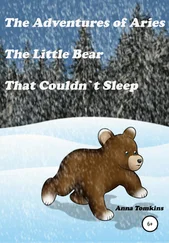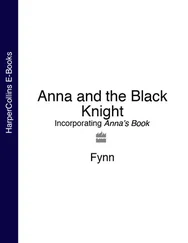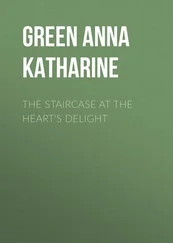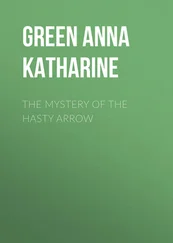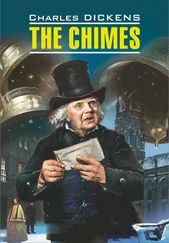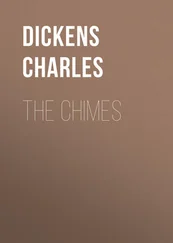At last I am level with the dust-covered floorboards that form the base of the tonic chamber. I am reluctant to add to it my weight, so I stand with my arm hooked through the fretwork of the instrument. I squint through dust and at last I see the thing that I don’t want to see. The impossible thing.
At the far end of the small chamber, tented by fallen arms of tiling, is a broken shape. The pooled white of a cloak. I push myself out onto the platform and feel it give as I crawl towards the shape on my knees. I see the back of his head. There is blood in the pale curled hair. I feel something building in my throat so huge and hard that I don’t want to open my mouth and let it out because it will rip me apart.
I can’t reach him. There is nothing else that matters except the distance between us. Everything goes dark, and I inch forward. Though the chamber is open to the air, it is black all around me and the plaster dust comes down. I use my back to prop a huge piece of tiling and push it. Then I can reach him. I reach out to his head, his hair. I touch his hand. It is warm.
I can’t bear to turn his head to me. I stay like that for a while, just cupping his head in my hands. Then I lean over so that I can move his body clear of the rubble.
Lucien’s face but not his face.
The high forehead, the hair rippled back off it. I stare at it and my head does not hear what my eyes are telling me. Or is it the other way around?
It is not Lucien. It is Sonja.

I do not know how I get down but that I get down. Edging backwards; slipping; falling. I escape from the broken innards of the instrument.
I leave Sonja there in its heart. Held in its clasp and in her mastery and sacrifice.
Out of the hall and onto the lawn, and on my knees I spit out dust.
After a while I sit up and I see the whiterobed figures rushing around me. Magisters pull off their robes as they run. They form strange patterns. They turn to each other like strangers, and their mouths move in silence as if they’ve never had to learn to converse. I watch them move toward each other and then back away, unable to seek consolation. And all of the different permutations of faces that are unaccustomed to the expressions of hopelessness and despair.
There is no joy in it. I look at the grass in front of me and after a while I understand that their mouths are not moving in silence after all. They are speaking. I simply cannot hear them. There is a slow rushing sound in my ears. I reach up to touch them and the fingers of my hand come away wet with blood.
How the hell did she do it? Lucien flanked by the tall figures of the poliss, followed by the young magister who would soon be dead. Sonja stumbling out of the hall, pushed by her father. Her path twists in my head like a well-executed run in the under, a melody always two steps ahead. I sit on the grass and I puzzle it and still I do not understand. When did she decide? Her feet, in their dance ahead of me, treading their skilful bluff. Clear and measured and irreproachable. Memorise the music. Steal the knife. Read in your brother’s face the understanding of his betrayal. Listen to his death sentence. Call out once in protest.
I see her running through the corridors of the hall, corridors filled with the last of that golden light. In her hand she holds my knife. Quick in her memory, the key tune that will open the chamber door. Beneath that, the whole wild close-beating company of her ambition and her loss — the music that she played and learned although it was not for her.
By the time she reaches the instrument, the poliss have already left. They have deposited the young traitor in the dominant chamber with the magister, hands firmly tied. They have done their duty and are ready for their breakfast. Nobody could expect a young girl to pose a threat. A young girl not even noted for any particular musical gift.
My thought turns to Magister Joachim, as I found him in the heart of the collapsed chamber. I think of his calm expression and I hope like hell that he was killed in the Carillon’s collapse, as I had thought, and not before. When I remember Sonja’s face as she turned from the sight of Martha’s body I am not fully sure of this.
I sit on the grass and I know that I have to leave. I must search the rubble again, then the emptied rooms of the Orkestrum, then the tunnels, the corridors. I need to move now and keep moving lest the tense hope that’s subito sprung up in me collapses along with everything else. But I can’t seem to move. My legs do not respond.
I look up and through the crowds one of the whiterobed figures is walking toward me, steady and tall. He crosses the grass. I watch as he gets closer and I wait for his path to change, for his face to contort. Then at last my body answers and I scramble to my feet and after a while he reaches me where I stand. His body is marvellously whole. Unbroken. He stretches his hand out to mine and then his arms are around me and we stand like that for who knows how long, in the shadow of the broken instrument.

After is a different place than I had thought, if had let myself think of it at all. It is making the dangerous trip back into the instrument to rescue Sonja’s body, and it is Lucien cradling her in his arms. His face cracked open in grief and the whole desperate unknown expanse of it stretching out.
After is knowing there is time for grief, and that time will be filled with it. Their heads inclined like that so you can’t tell the difference between their pale curled hair. His hand to the curve of her face as if asking forgiveness. No help for any of it. Just a long path that we must go ahead on. It is the flint from Sonja’s own pocket that lights the bier.
Smoke from the burning instrument rises upward into the sky. It twists in the air. The sweet wood, fine-tuned and jointed, goes up lento. We stand and watch it burn and the smoke smells like incense.
Later, in that time called after, we walk unquestioned through the Citadel. We pass people on their hands and knees with their faces twisted, still howling out their despair in silence. The ringing in my ears lessens, but does not stop.
The gatehouse is unmanned. Through the para windows is the picture of an abrupt exit. A lute hanging from a chair, still swinging from its broidered strap. Scores scattered on the floor. On a bench a half-eaten sandwich sits on stickwrap.
Past the tower we walk and through the city. And it is coming alive lento in the early light. Children clutching their half and three-quarter viols and cellos. Instrument makers holding lathes, planes, polishing cloths. The stall holders in markets stare out over dropped fruit, the white blown leaves of sheet music, the unfurled bolts of cloth. Families in stunned lines, mothers grasping babies tight and holding them into their shoulders, shielded from the gauzy wings of the smoke that stretch now through the town and through the market.
People out and clustering everywhere on the streets. They have emerged from shops and houses, from crosshouses and concert halls and workshops. They stand blinking in the light, and on their faces is the echo of the story that has been sounded. And I wish that I could say it was a look of wonder, or relief, or enlightenment. That I could see understanding there; pain, but the pain that comes from understanding.
But instead it is like watching someone wake from a dream. The look on their faces is of something crumbling around them as they watch. The look of something taken away.
It is an awful knowledge. Even if what you are coming up out of is a nightmare, waking is hard. When you were deep inside the dream, all was decided for you. Out in the morning is something else altogether. Something you have to choose for yourself.
Читать дальше
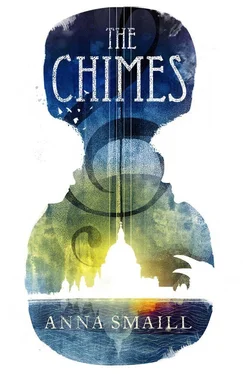



![Чарльз Диккенс - Колокола [The Chimes]](/books/395589/charlz-dikkens-kolokola-the-chimes-thumb.webp)


